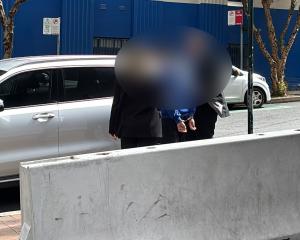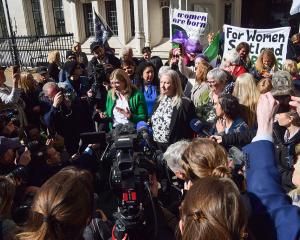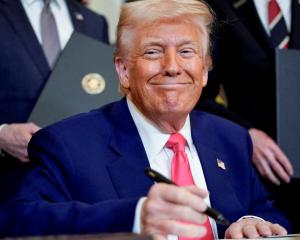
Justice Juan Merchan said he denied Trump's motion to dismiss the case due to his presidential election victory. The judge said the Republican president-elect may appear for the sentencing, which will take place just 10 days before his inauguration, either in-person or virtually.
Merchan wrote that a sentence of "unconditional discharge" - meaning no custody, monetary fine, or probation - would be "the most viable solution".
A spokesperson for Trump did not immediately respond to a request for comment.
In Trump's second motion to dismiss the case filed since his May conviction, his defense lawyers argued that having the case hang over him during his presidency would impede his ability to govern.
Merchan rejected that argument, writing that setting aside the jury's verdict would "undermine the Rule of Law in immeasurable ways."
"Defendant's status as President-elect does not require the drastic and 'rare' application of (the court's) authority to grant the (dismissal) motion," Merchan wrote in the decision.
Trump was initially scheduled to be sentenced on November 26, but Merchan pushed that back indefinitely after Trump defeated Democratic Vice President Kamala Harris in the November 5 election.
Prosecutors with Manhattan District Attorney Alvin Bragg's office, which brought the case, said there were measures short of the "extreme remedy" of overturning the jury's verdict that could assuage Trump's concerns about being distracted by a criminal case while serving as president.
They suggested several options for Merchan, including delaying the sentencing until Trump, 78, leaves the White House in 2029, or guaranteeing a sentence that would not involve prison time.
The prosecutors also said the judge could simply terminate the case with a notation that Trump was never sentenced and that his conviction was neither affirmed nor reversed on appeal. They said a similar approach was used in cases where a defendant dies after being convicted but before being sentenced.
The case stemmed from a $US130,000 payment that Trump's former lawyer Michael Cohen made to adult film actor Stormy Daniels. The payment was for her silence before the 2016 election about a sexual encounter she has said she had a decade earlier with Trump, who denies it.
A Manhattan jury in May found Trump guilty of 34 counts of falsifying business records to cover up the payment. It was the first time a US president - former or sitting - had been convicted of or charged with a criminal offence.
Trump pleaded not guilty and called the case an attempt by Bragg, a Democrat, to harm his 2024 campaign.
Trump on December 16 lost a separate bid to toss the conviction in light of the US Supreme Court's July 1 decision that presidents cannot be criminally prosecuted over their official actions, and that evidence of their official actions cannot be presented in criminal cases over personal conduct.
In denying Trump's motion to dismiss, Merchan said the prosecution over "decidedly personal acts of falsifying business records poses no danger of intrusion on the authority and function of the executive branch."
Falsifying business records is punishable by up to four years in prison, but incarceration is not required. Before his election victory, legal experts said it was unlikely Trump would be locked up due to his lack of a criminal history and advanced age.
Trump was charged in three other state and federal criminal cases in 2023: one involving classified documents he kept after leaving office and two others involving his efforts to overturn his 2020 election loss.
He pleaded not guilty in all three cases. The Justice Department moved to dismiss the two federal cases after Trump's election victory.
Trump's state criminal case in Georgia over charges stemming from his effort to overturn his 2020 election loss in that state is in limbo.












